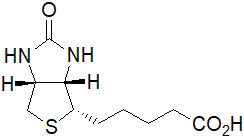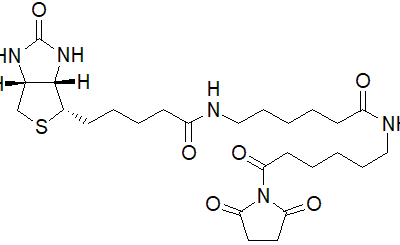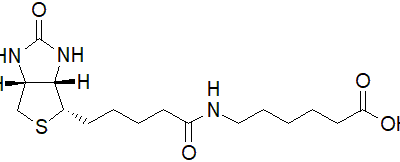Additional information
| Description | Biotin serves as a crucial coenzyme for specific carboxylases and is integral in modifying histones to regulate gene transcription [1,2,3]. Biotin-dependent carboxylases contribute to fatty acid and amino acid synthesis, as well as gluconeogenesis [1]. Beyond its metabolic roles, biotin finds applications in biotechnology, including DNA hybridization, flow cytometry, affinity purification, and the identification of protein-protein interactions and post-translational modifications [4]. |
|---|---|
| Reference | [1] Tong, L. Structure and function of biotin-dependent carboxylases. Cell Mol. Life Sci. 70(5), 863-891 (2013). |


![N-(3-(2-(2-(3-Aminopropoxy)ethoxy)ethoxy)propyl)-5-((3aS,4S,6aR)-2-oxohexahydro-1H-thieno[3,4-d]imidazol-4-yl)pentanamide](https://crolaboratories.com/wp-content/uploads/2022/09/B-22010-400x162.png)


